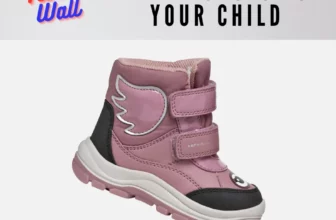
Choosing the right baby carrier is a game-changer for parents, offering comfort, convenience, and a closer bond with your little one. With a wide range of carriers available, finding the perfect one can be overwhelming. In this ultimate guide, we’ll explore the key factors to consider when selecting the best baby carrier, helping you make an informed decision that suits both you and your baby.

Why Choosing the Right Baby Carrier Matters
A baby carrier isn’t just a piece of baby gear; it’s an essential tool that allows you to keep your baby close while freeing up your hands. The right carrier provides comfort for both you and your baby, making daily activities easier and enhancing your bond. Moreover, a well-chosen carrier supports your baby’s physical development, offering the right ergonomic positioning for their growing body.
Understanding Different Types of Baby Carriers
When selecting a baby carrier, it’s important to understand the different types available, each offering unique benefits depending on your needs and your baby’s stage of development.
1. Wrap Carriers
Wraps are long pieces of fabric that you tie around your body to hold your baby close. They offer a snug, customizable fit, making them ideal for newborns. Wraps are versatile and can be adjusted to different carrying positions, though they require practice to master.
2. Ring Slings
Ring slings are similar to wraps but come with rings that allow for easier adjustment. They are often made of lightweight fabric, making them a good option for warmer climates. Ring slings provide excellent support for newborns and are easier to use than wraps, but they may not be as comfortable for extended wear as your baby grows.
3. Soft-Structured Carriers (SSCs)
SSCs are designed with padded shoulder straps and waist belts, offering more structure and support. They are easy to use, with buckles that make them quick to put on and take off. SSCs are great for babies and toddlers alike, offering multiple carrying positions (front, back, and hip) and distributing weight evenly to reduce strain on your back.
4. Mei Tai Carriers
Mei Tai carriers combine features of wraps and SSCs, offering a structured yet flexible design. They have straps that you tie around your body, providing a customized fit similar to wraps, but with the added support of a soft-structured carrier. Mei Tai carriers are versatile and can be used from newborn through toddlerhood.
5. Backpack Carriers
Backpack carriers are designed for older babies and toddlers, particularly for outdoor activities like hiking. They offer substantial support and often include storage compartments, making them ideal for parents on the go. However, they are bulkier and less suitable for everyday use.
Key Factors to Consider When Choosing a Baby Carrier
When selecting the best baby carrier, consider the following key factors to ensure you make the right choice:
1. Comfort and Fit
Comfort is paramount for both you and your baby. Look for carriers with padded straps, adjustable settings, and good lumbar support to distribute your baby’s weight evenly. The carrier should fit snugly, keeping your baby close to your body without causing discomfort.
Accessories for baby carriers:



2. Baby’s Age and Weight
Choose a carrier that is appropriate for your baby’s age and weight. Newborns require soft, supportive carriers that cradle their fragile bodies, while older babies and toddlers benefit from more structured carriers that provide additional support.
Age 0-12 Months

Age 0-15 Months



Age 0-3 Years








3. Ease of Use
The best baby carrier is one that fits seamlessly into your daily routine. Consider how easy it is to put on, adjust, and take off. Wraps and ring slings may require more practice but offer a customized fit, while soft-structured carriers and Mei Tai carriers are generally quicker to use.
4. Versatility
A versatile carrier allows for multiple carrying positions, adapting to your baby’s changing needs as they grow. Convertible carriers that offer front, back, and hip positions are a great investment, providing longevity and value.
5. Climate Considerations
Consider the climate where you live when choosing a carrier. Lightweight, breathable fabrics are ideal for hot weather, while carriers with thicker material or those designed with weather-resistant features are better suited for colder climates.
6. Safety
Ensure that the carrier meets safety standards and includes a secure harness to keep your baby safe. The carrier should support your baby’s hips in the “M” position, with their knees higher than their bottom, to promote healthy hip development and reduce the risk of hip dysplasia.
How to Choose the Best Baby Carrier for Your Needs
Choosing the best baby carrier depends on your lifestyle, your baby’s needs, and your personal preferences. Here’s a quick guide to help you decide:
- For Newborns: Wraps and ring slings provide the snug support newborns need.
- For Toddlers: Soft-structured carriers and backpack carriers offer the support required for older babies.
- For Versatility: Mei Tai carriers and convertible SSCs offer multiple carrying positions, adapting to your growing baby.
- For Active Parents: Backpack carriers are ideal for outdoor adventures with older babies and toddlers.

Conclusion
Selecting the best baby carrier is a personal decision that depends on various factors, including your baby’s age, your comfort, and how you plan to use the carrier. By understanding the different types of carriers and considering key factors like comfort, fit, and safety, you can find the perfect carrier that will support your parenting journey and keep your baby close and secure.
For more parenting tips and in-depth reviews of the best baby products, explore our other articles. Finding the right baby carrier is just the beginning—there’s a whole world of baby gear to discover!
FAQ’s for Best Baby Carriers
How do I know if a baby carrier is safe for my newborn?
Ensure that the carrier is designed for newborns, offering ample neck and head support. The carrier should hold your baby in an ergonomic position, with their knees higher than their hips, to support healthy hip development.
Can I use the same carrier as my baby grows?
Yes, many carriers are designed to grow with your baby. Convertible carriers, for instance, offer multiple carrying positions and adjustable settings that accommodate your baby from infancy through toddlerhood.
Is it comfortable to carry a baby for long periods?
Comfort depends on the carrier’s design and fit. Look for carriers with padded straps, lumbar support, and adjustable features that distribute weight evenly. Taking breaks and adjusting the carrier as needed can also help maintain comfort.
Are baby carriers suitable for all weather conditions?
While baby carriers can be used in all weather, it’s important to choose one that suits your climate. Lightweight, breathable fabrics are best for warm weather, while thicker, weather-resistant materials are better for cooler temperatures.
What is the best position to carry a newborn?
The front-facing inward position is the safest for newborns, as it provides necessary neck and head support while keeping your baby close and secure.









[…] Summer is here, bringing with it long sunny days, outdoor adventures, and, unfortunately, sweltering heat. As temperatures rise, staying cool and comfortable becomes a top priority. Thankfully, there are some innovative gadgets designed to help you beat the heat and make your summer more enjoyable, whether you’re at home, at work, or on the go. Let’s explore three must-have items that will keep you cool all summer long: the Cool Mist Air Humidifier with Night Light, Desk Fan USB, and Portable Stroller Fan Clip on for Baby. […]